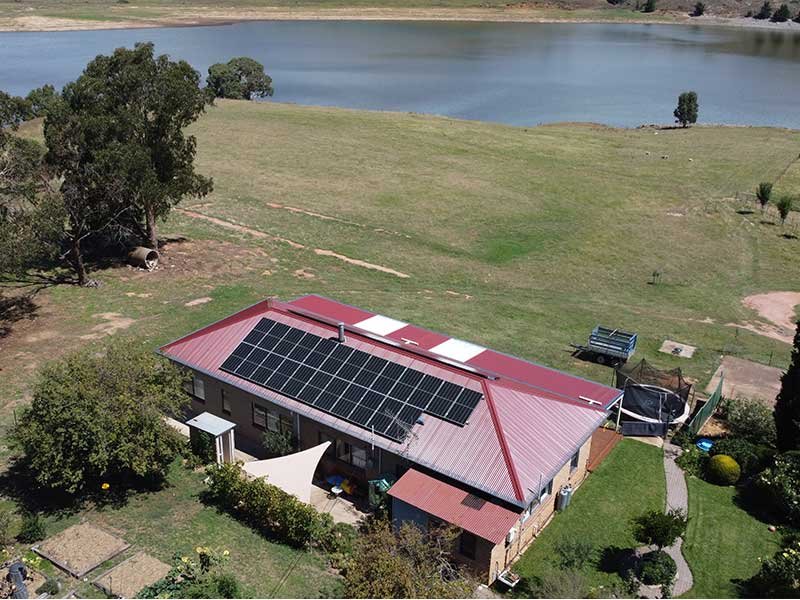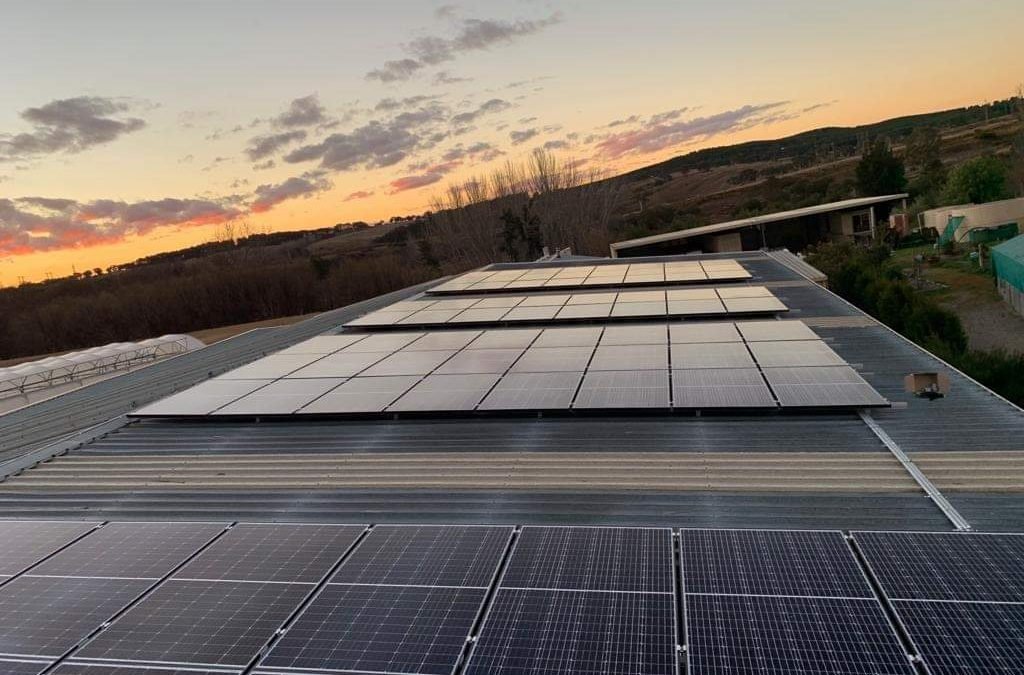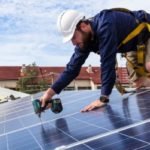
How to choose best Solar Panels for home
Choosing the best solar panels for your home can be a daunting task, as there are many different options available on the market. However, there are a few key factors to consider when selecting the right solar panels for your needs:
best Solar Panels for home
1. Efficiency
Solar panel efficiency refers to the amount of sunlight that a panel can convert into electricity. The more efficient a solar panel is, the more power it can generate from the same amount of sunlight. Efficiency is measured as a percentage of the amount of sunlight that hits the panel and is converted into electricity.
Most solar panels have an efficiency rating of between 15% and 20%, meaning that they can convert between 15% and 20% of the sunlight that hits them into electricity. However, some newer panels can achieve efficiencies of up to 22%, or even higher in laboratory settings.
When choosing solar panels for your home, it’s important to consider the efficiency rating, as it will determine how much energy your system can produce. Higher efficiency panels will generate more power in less space, which can be especially important for homeowners with limited roof space or those looking to maximize their energy production. However, higher efficiency panels may also come at a higher cost, so it’s important to consider the tradeoff between efficiency and price when choosing solar panels.
2. Durability
When it comes to solar panels, durability refers to the ability of the panels to withstand various environmental factors and maintain their performance over time. Some key factors to consider when evaluating the durability of solar panels include:
- Weather resistance: Solar panels should be able to withstand exposure to rain, hail, snow, and high winds. Panels that are designed to withstand harsh weather conditions will have a stronger frame, tempered glass, and other protective features.
- Temperature tolerance: Solar panels should be able to perform well in both hot and cold temperatures. Some panels may be more efficient at higher temperatures, while others may perform better in cooler climates.
- Corrosion resistance: Solar panels are typically exposed to a range of environmental factors that can cause corrosion over time. Panels that are resistant to corrosion will last longer and require less maintenance.
- Impact resistance: In addition to hail and other weather-related impacts, solar panels may also be vulnerable to damage from debris or falling objects. Panels that are designed to withstand impacts will be more durable over time.
- Certification: Look for solar panels that have been certified by independent organizations, such as UL or IEC, for durability and performance. These certifications can provide additional assurance that the panels will perform well over time.
Overall, it’s important to choose solar panels that are designed to withstand the environmental factors in your region and that come with strong warranties to ensure their long-term durability.

3. Warranty
When choosing solar panels for your home, it’s important to consider the warranty that comes with them. A solar panel warranty provides protection against defects in materials and workmanship, and guarantees that the panels will produce a certain level of power over their lifespan.
Most solar panel manufacturers offer two types of warranties: a product warranty and a performance warranty. The product warranty covers defects in materials and workmanship and typically lasts for 10-25 years. The performance warranty guarantees that the panels will produce a certain level of power over a specified period of time, such as 25 years. If the panels do not meet the specified performance levels, the manufacturer will repair or replace them.
When evaluating solar panel warranties, consider the following factors:
- Length: Look for warranties that provide coverage for at least 25 years, which is the expected lifespan of most solar panels.
- Coverage: Make sure the warranty covers both product defects and performance issues. Some manufacturers may offer separate warranties for each.
- Transferability: Some warranties may be transferable if you sell your home, which can be a valuable selling point.
- Exclusions: Be sure to read the fine print of the warranty to understand any exclusions or limitations.
- Manufacturer reputation: Look for solar panel manufacturers with a strong reputation for quality and reliability, as this can provide additional assurance that the warranty will be honored if needed.
Overall, a strong warranty can provide peace of mind and protect your investment in solar panels over their lifespan. Be sure to carefully review the warranty terms and choose a reputable manufacturer to ensure you get the best possible coverage.
4. Price
The price of solar panels can vary widely depending on several factors, including the size of the system, the efficiency of the panels, and the brand and quality of the components. While solar panels can be a significant investment, they can also provide long-term savings by reducing or eliminating your monthly electricity bill.
When evaluating the price of solar panels for your home, consider the following factors:
- System size: The size of your solar system will depend on your energy needs and the amount of available roof space. Larger systems will typically cost more but may provide greater energy savings over time.
- Efficiency: Higher efficiency panels may come at a higher price point but can also generate more power in less space, which can be especially important for homeowners with limited roof space.
- Brand and quality: Solar panels from well-known brands with a strong reputation for quality and reliability may cost more upfront but can provide greater long-term savings by lasting longer and performing better.
- Installation: The cost of installation can vary depending on the complexity of the project, the location of your home, and other factors. Be sure to get quotes from several installers to compare prices.
- Incentives and rebates: In some areas, there may be incentives or rebates available to offset the cost of solar panel installation. Be sure to check with your local utility or government to see if you qualify for any programs.

Overall, while the upfront cost of solar panels can be significant, they can provide a strong return on investment over their lifespan. Be sure to consider the total cost of ownership, including installation, maintenance, and energy savings, when evaluating the price of solar panels for your home.
5. Installation
Installation is an important factor to consider when choosing solar panels for your home. The installation process involves more than just mounting the panels on your roof – it also includes electrical wiring, inverter installation, and other components that are essential for the system to function properly. Here are some key factors to consider when evaluating the installation process:
- Professional installation: Solar panel installation requires specialized knowledge and expertise. It’s important to choose a professional installer with experience in solar panel installation to ensure that the system is installed safely and correctly.
- Roof suitability: Not all roofs are suitable for solar panel installation. Your roof must be in good condition and free of shading from trees or other obstructions. A professional installer will assess your roof and determine if it’s suitable for solar panel installation.
- System design: The design of your solar system will depend on your energy needs and the available space on your roof. A professional installer will design a system that is optimized for your home’s energy usage and roof space.
- Permits and regulations: Solar panel installation requires permits and must comply with local regulations. A professional installer will handle the permitting process and ensure that your system is compliant with all applicable regulations.
- Timeline and scheduling: Solar panel installation can take several weeks to complete. Be sure to ask your installer for an estimated timeline and schedule to ensure that the installation process is convenient for you.
Overall, professional installation is essential for a safe and efficient solar panel system. Be sure to choose an experienced installer who can assess your roof, design a system that meets your needs, and handle the permitting process and installation from start to finish.
Ultimately, the best solar panels for your home will depend on your specific needs and budget. Be sure to do your research and work with a reputable installer to ensure you get the best possible system for your home.



![Solar Panel Buyers Guide [5 Tips]](https://canberrasolarshine.com.au/wp-content/uploads/2021/04/Solar-Panel-Buyers-Guide.jpg)





